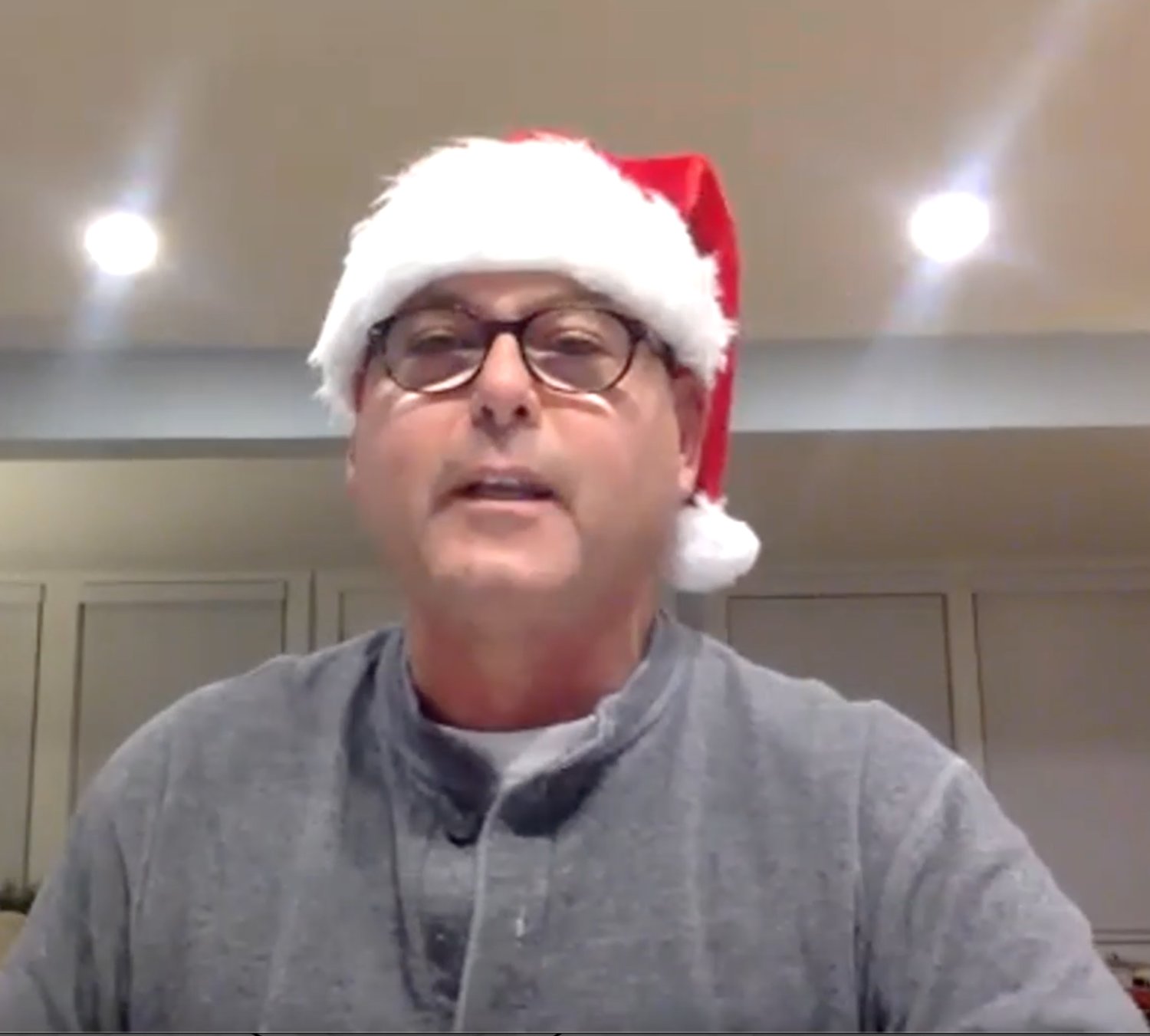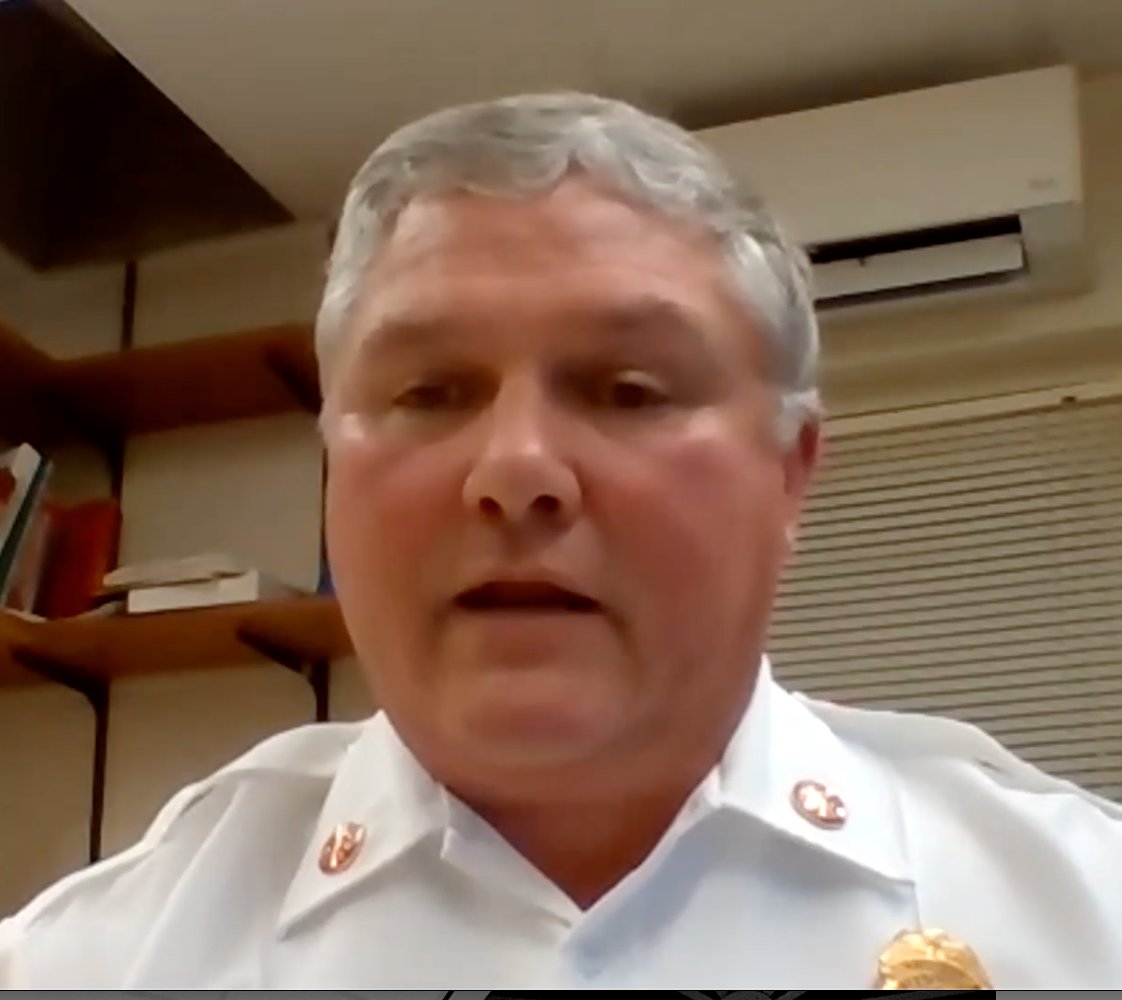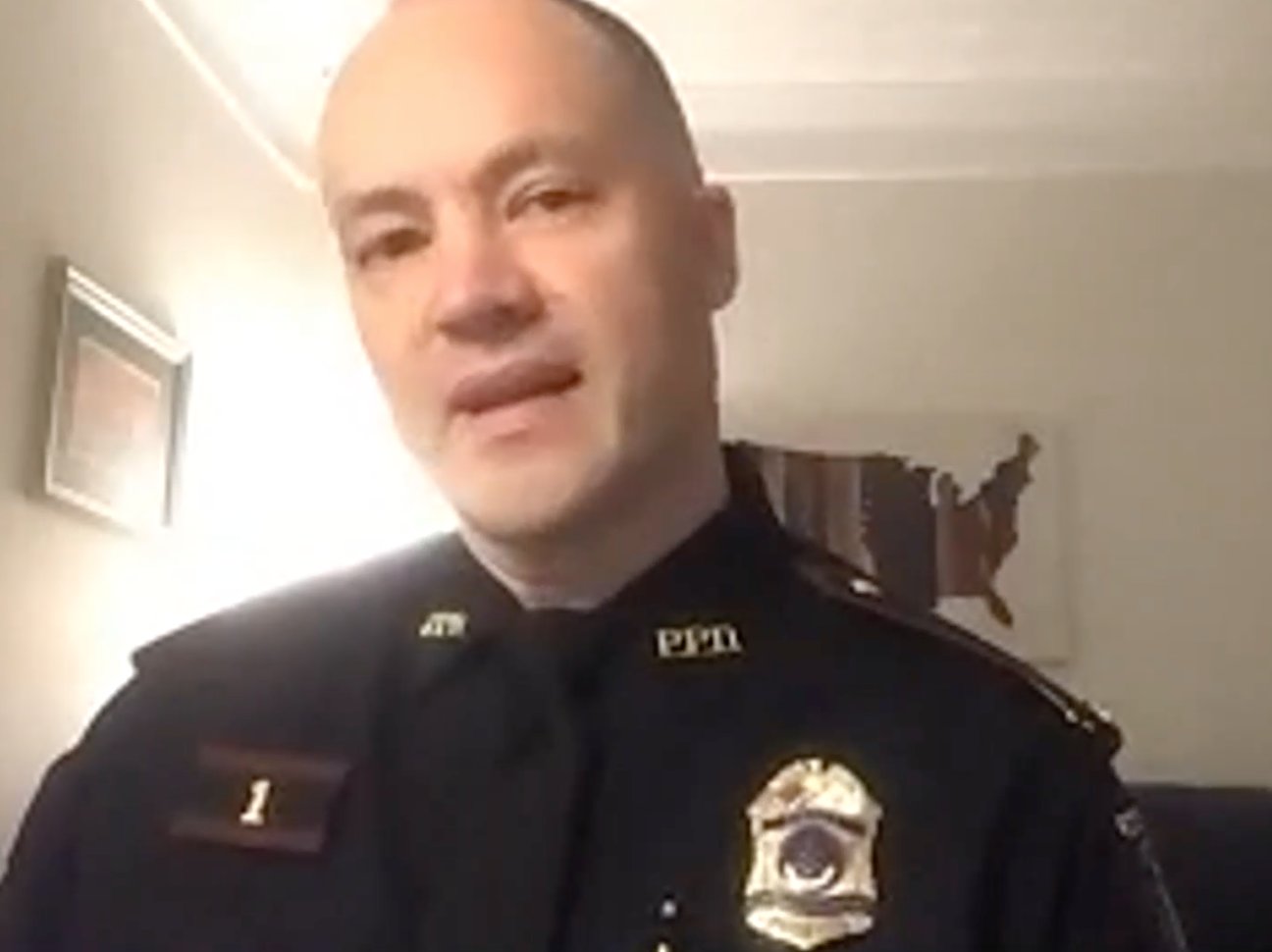- TUESDAY, JULY 16, 2024
When the weather outside is frightful …
Winter safety tips offered up at forum hosted by Portsmouth neighborhood group
PORTSMOUTH — Sure, you can go outside and roast chestnuts on an open fire. Just make sure you get a permit first.
“You can only burn brush and what we call clean wood,” Fire …
This item is available in full to subscribers.
Please log in to continue |
Register to post eventsIf you'd like to post an event to our calendar, you can create a free account by clicking here. Note that free accounts do not have access to our subscriber-only content. |
Day pass subscribers
Are you a day pass subscriber who needs to log in? Click here to continue.
When the weather outside is frightful …
Winter safety tips offered up at forum hosted by Portsmouth neighborhood group
PORTSMOUTH — Sure, you can go outside and roast chestnuts on an open fire. Just make sure you get a permit first.
“You can only burn brush and what we call clean wood,” Fire Chief Paul Ford said at a recent open forum hosted by the Common Fence Point Preparedness Committee. “You can’t burn construction materials — 2-by-4s, painted moldings that you pulled off the house.”
That was one of several tips and safety measures offered up at a virtual “Home for the Holidays” event hosted by the neighborhood group that reviewed preparations and safety for this winter. Facilitated by the committee’s Jeff Prater — he dressed for the occasion in a Santa hat and cued up holiday music between segments — the forum featured chats with not only Chief Ford but Police Chief Brian Peters and Department of Public Works Director Brian Woodhead.
Avoiding the deep freeze
Much of Mr. Woodhead’s discussion revolved around how to keep your pipes from freezing. “As the temperature starts to drop, pipes located in unheated interior spaces, including garages, attics and basements, are prone to freeze-ups,” he said.
He shared 10 tips on how to prevent this from happening, including insulating your pipes. “This is the best way to keep your pipes from freezing. The most common kinds of pipe insulations are made from fiberglas, polyurethane and foam,” Mr. Woodhead said.
Other precautions to take include keeping your garage doors closed, especially if water supply lines go through the garage; opening your bathroom and kitchen cabinets, as well as interior doors, to keep the air flow circulating; and keeping your thermostat set as constant as possible, day and night. If you plan on leaving your home during the winter, leave the heat on, he said. “Any temperature of 55 degrees or higher is appropriate to keep the pipes safe.”
Mr. Woodhead also advised residents to inspect their homes for any cracks and openings in windows, door frames and cable holes in walls or floors, and seal them to prevent drafts; and to also temporarily seal crawl spaces to prevent cold air reaching the pipes.
If your pipes do burst, the first agency you should contact isn’t DPW but the Portsmouth Water and Fire District. Mr. Prater learned this the hard way when his family took a vacation at the end of December 2017. The family had purchased a three-season home in the neighborhood in November, and renovated it into a year-round home by insulating the water meter.
“We took a vacation the last few days of December, and while we were on vacation, guess what? Baby, it was cold outside,” Mr. Prater said. “That was the December and early January it got down to minus-20, and you guessed it — the meter froze and it burst. Over those three days when we were gone, we had ankle-deep water in the garage, a glacier was forming down the driveway.”
In the event of a power outage and a power line or tree limb is down, Mr. Woodhead said to keep a safe distance. “Report them to police, as they have the emergency contact information,” he said.
Shoveling out
The DPW director also gave an update on how the department plows the streets of snow, which he said is a little different this season due to the COVID-19 pandemic. The department has 14 plow routes in Portsmouth, plus another two on Prudence Island.
“When the first snowflakes (fall), we go out and treat all the roads in town with salt; this is to help prevent the snow from sticking or tacking to the roadway,” he said. “When the snow has built up to about two inches, we go out and start plowing. We’re just opening the roadways, making two passes down each road.”
That process takes about three to four hours per route, he said, and may have to be repeated depending on the rate of snowfall and the accumulation.
“When the snow has stopped, then we push back all the roads, curb to curb. This takes about four passes on every roadway,” said Mr. Woodhead, noting that’s done to expose catch basis while trying to get as close to the mailboxes as possible. After that, crew members go back out and salt the roads one more time before they catch some shuteye.
“I do ask everyone who has basketball hoops in the roadway to please remove them before a snowstorm, as they can be a hindrance for our plow operators,” Mr. Woodhead said.
Fire safety
Aimee Sweeney, who introduced Chief Ford, knows firsthand the dangers of house fires.
“In 2014, our house on Summit Road burned to the ground. It was absolutely unbelievable and scary. Fortunately, my husband and my two boys were unharmed, but we did lose two pets in the fire,” she said.
Chief Ford, who was appointed to his current position in 2018, spent 35 years before that in firefighting service in Massachusetts. He’s also a senior instructor at the Massachusetts Firefighting Academy.
“No discussion on fire safety can even begin without smoke detectors and carbon monoxide detectors,” the chief said, urging residents to make sure they have both types of detectors installed on every floor of their home. “Test your smoke alarms monthly and change the batteries twice a year. The typical way we remember to change our batteries is that it’s when we change our clocks in the spring and fall.”
All smoke detectors have a 10-year lifespan and must be replaced after that point. He recommended buying one of the new detectors that come with a 10-year sealed battery. “Which makes it easy; you buy it one time and it’s good for the life of that smoke detector or carbon monoxide detector.”
If there is a fire in the house, every family should have an exit plan. “And with children in the home, you should practice that plan. Instill upon them the importance of getting out of the house immediately as soon as the alarms sound,” Chief Ford said.
He also shared ways of avoiding dangerous levels of carbon monoxide, which is typically released by heating equipment. “What we don’t want to do is heat your home, even temporarily, by using your oven or your stovetop. This has happened in the past. Those appliances are not made for continual heating of your home, as they’re not vented,” the fire chief said.
All chimneys should be checked and cleaned annually, so that creosote doesn’t build up, and all exhaust vents cleared of brush or snow. “A lot of the new high-efficiency furnaces no longer use our typical chimney; they use a direct vent outside of the house. There have been catastrophic events where entire families have died because snow built up and blocked those exhaust vents and therefore all of the carbon monoxide built up in the home,” Chief Ford said.
All ash should be disposed in a metal container away from the house — not on a deck, he said. “I have personally been to disastrous house fires where the ashes were put in a paper bag and put in the trash can inside the house or on the deck.”
If you use propane, the smell of rotten eggs may be a sign of a leak. (Propane, like natural gas, is odorless, but an odorant is added for safety purposes, he said.) “Don’t smoke, don’t turn any light switches on or off. Leave everything the way it is, get out of the house and call 911 from outside the house,” Chief Ford said.
Never use a space-heater as your primary heat source, and don’t plug them into an extension cord whenever possible. Extension cords that are run under carpets can build up heat and cause a fire, he said.
As for the question over whether you need an outdoor burn permit, Chief Ford acknowledged the rules are often confusing for residents, so the department is working on clarifying them before spring. In general, however, you must obtain a permit from the Fire Department for open fires in your backyard or at a beach. The fires cannot be any closer than 50 feet from a structure. Contained fires, such as those in an outdoor fireplace or chiminea, don’t require a permit, but they need to be 25 feet from a structure, he said.
In some neighborhoods — Common Fence Point is a good example, he said — maintaining that 25-foot distance is “nearly impossible.” The department is looking to re-vamp the ordinance so firefighters can come out and make a determination on a case-by-case basis, he said.
Driving safety
Chief Peters focused most of his time on winter driving safety. He urged all drivers to keep an emergency supply kit in their vehicle, including jumper cables, flares, an ice-scrapers and snow brush, snow shovel, warm blanket, First Aid kit, extra phone chargers, water and snacks, and a brightly colored cloth to display outside your vehicle so motorists can see you if you’re stopped during a snowstorm.
Of course, you should avoid going out on the roads when it’s stormy outside. But if you must, make sure your vehicle is cleared of ice and snow for better visibility — it’s the law and you could be fined $85 if found in violation, Chief Peters said.
When driving in icy or snowy conditions, increase the distance between your car and the one in front of you, and never use cruise control, he said. Use “slow and consistent” speed when climbing hills — the one on West Main Road by Raytheon can be particularly treacherous, the chief said. If you hit a patch of black ice, don’t brake. “That’s just going to make things worse. Take your foot off the accelerator and steer through it,” he said.
If you have to pull over during a storm, run the vehicle only for 10 minutes per hour to conserve fuel, and make sure the exhaust pipe is clear to minimize the risk of carbon monoxide buildup. If you get into a crash and a power line falls on your car, stay inside until a professional arrives.
Chief Peters also urged parents to not dress their infants or toddlers in bulky clothing before strapping them into a safety seat.
“The problem is, if the child has too much clothing on, the safety seat loses its effectiveness; you can’t have that five-part harness snug on the child to protect that child in a crash from being ejected from the seat,” he said. Instead, put the heavy winter coat or a blanket over the child after he or she is fastened in.
The chief also touched upon home safety, saying every household should have a 72-hour supply of food, water and medications in the event of a major storm. Make sure flashlights and phones are charged.
Most importantly, sign up for the town’s Code Red alert service, which sends emergency notifications — from evacuation notices to missing child alerts. Text “PortsmouthRI” to 99411 and you’ll be sent a link where you can sign up, or visit www.portsmouthri.com/423/CodeRED.
And if you’re got the hankering to go ice skating outdoors, first make sure that nearby pond is safe, the chief said. Call the R.I. Department of Environmental Management’s 24-hour ice information line at 401/667-6222.
Thanks for help
Mr. Prater gave shout-outs to Pam Rubinoff of the URI Coastal Graduate School of Oceanography, and Jen West of the Narragansett Bay Research Reserve, both of whom participated in the virtual forum. The two women have assisted the committee on several neighborhood planning and public education initiatives regarding climate change, sea level rise and emergency planning.
Please support your local news coverage
The COVID-19 pandemic has brought the local economy - and many of the advertisers who support our work - to a near standstill. During this unprecedented challenge, we continue to make our coronavirus coverage free to everyone at eastbayri.com - we believe it is our mission is to deliver vital information to our communities. If you believe local news is essential, especially during this crisis, please consider a tax-deductible donation.
Thank you for your support!
Matt Hayes, Portsmouth Times Publisher
Other items that may interest you











